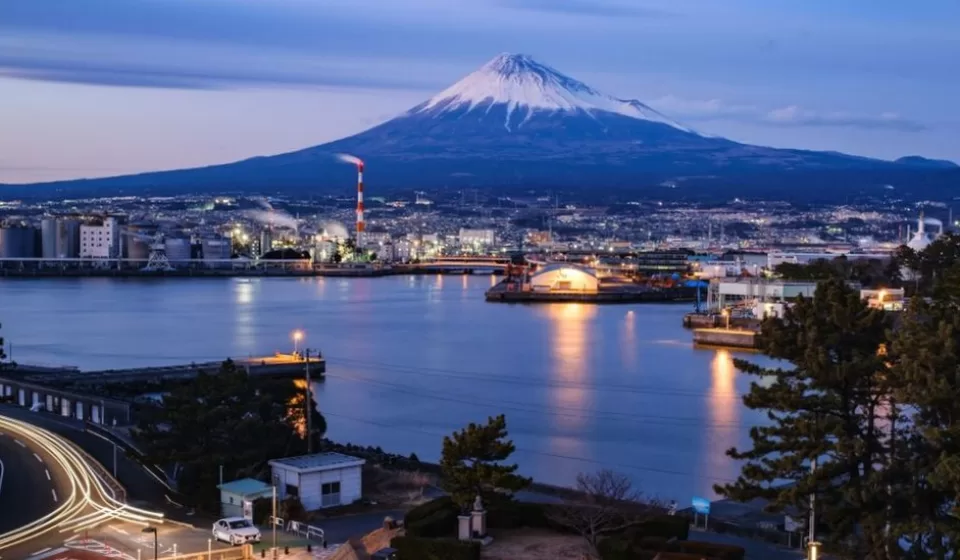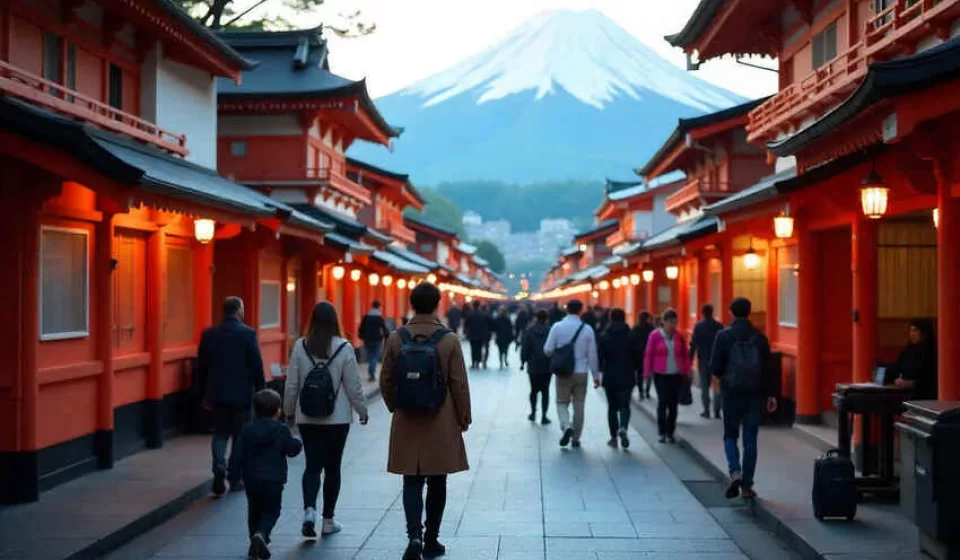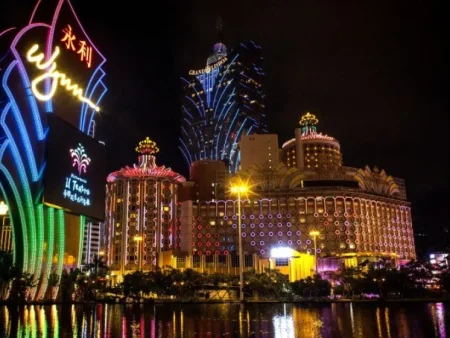In 2025, Japan’s tourism policy has taken center stage on the international stage, marking a transformative moment for the nation’s travel and economic sectors. Under the leadership of Japan’s new Prime Minister, the government has introduced a forward-looking framework designed to attract millions of global visitors while revitalizing local economies.
This renewed policy emphasizes innovation, sustainability, and inclusivity — aligning with Japan’s long-term vision of becoming Asia’s most dynamic tourism hub. Key initiatives include expanding integrated resorts (IRs), simplifying visa regulations, and strengthening partnerships with global airlines and hospitality groups.
Experts note that Japan’s tourism policy not only aims to boost economic growth but also enhances the country’s cultural diplomacy by encouraging meaningful exchanges between visitors and local communities. With strategic investments and eco-friendly tourism goals, Japan is positioning itself as a model for how nations can balance economic progress with cultural preservation in a post-pandemic world.
Japan’s new Prime Minister has stepped into office with a vision to invigorate the nation’s economy and enhance its global standing. Known for his dynamic leadership and forward-thinking strategies, he aims to attract more international visitors and propel the local economy through robust tourism initiatives.
The recent cabinet reshuffle has brought fresh faces into key positions, emphasizing the significance of tourism in Japan’s recovery and growth. This new administration is poised to implement transformative policies that prioritize:
- Investment in integrated resorts
- Streamlined visa processes for tourists
- Enhanced marketing efforts promoting Japan as a top travel destination
The Importance of Tourism in Japan
Tourism serves as a catalyst for economic development in Japan, with profound implications for integrated resorts. The new PM recognizes that:
- Tourism creates job opportunities and boosts local businesses
- Integrated resorts can contribute significantly to GDP growth
- A thriving tourism sector fosters cultural exchange and international relations
The Japan tourism policy, aimed at enhancing integrated resorts, will undoubtedly impact visitor experiences while stimulating economic activity across the nation. With strategic investments and a clear focus on growth, Japan is set to embark on a new era of tourism that promises benefits for residents and travelers alike.
Japan’s IR Policy Shift
What are Integrated Resorts (IR)?
Integrated Resorts (IR) are comprehensive entertainment complexes that blend various facilities under one roof, including:
- Luxury hotels
- Gaming areas
- Convention centers
- Shopping outlets
- Food and beverage options
This innovative approach aims to enhance the tourism experience while boosting local and national economies. In Japan, the establishment of IRs signifies a strategic pivot in its tourism policy.
Key Features of the New IR Policy
The recent shift in Japan’s tourism policy includes several key features designed to attract international visitors and bolster the economy:
- Regulated Casino Operations: Strict guidelines for gaming establishments to ensure ethical practices
- Investment Incentives: Financial benefits for developers willing to invest in IR projects
- Focus on Sustainability: Commitment to environmentally friendly practices within resorts
- Local Community Engagement: Initiatives to ensure benefits for surrounding communities
Expected Economic Impact on Japan
The impact of Japan’s tourism policy on integrated resorts is anticipated to be significant:
- Job Creation: Thousands of new positions across various sectors
- Increased Tourism: A potential surge in international visitors
- Revenue Generation: Additional tax income and significant investments in infrastructure
With carefully implemented strategies, Japan is poised to transform its tourism sector, making integrated resorts a cornerstone of future economic growth.
Boosting Tourism: Strategies and Focus
Target Markets for Increased Tourism
Apacaff | To enhance the impact of Japan’s tourism policy on integrated resorts, it is essential to identify and target specific markets. Focusing on diverse demographics allows for tailored marketing strategies that resonate with potential visitors. Here are key markets to consider:
- Families: Create packages that cater to all ages.
- Adventure Seekers: Promote outdoor activities and experiences.
- Cultural Enthusiasts: Highlight Japan’s rich heritage and traditions.
- Luxury Travelers: Offer exclusive experiences in integrated resorts.
Improvements in Visitor Experience
Enhancing the visitor experience is crucial for the success of Japan’s tourism policy. By implementing the following strategies, resorts can ensure guests have memorable stays:
- Seamless Check-In/Check-Out: Simplified processes to reduce wait times.
- Localized Services: Offer personalized recommendations based on guests’ preferences.
- 24/7 Support: Ensure assistance is always available for guests.
- Culinary Experiences: Showcase local cuisines through unique dining options.
Partnerships with International Airlines
Establishing collaborations with international airlines is vital to elevate Japan’s tourism profile. Targeting flights from key regions will facilitate easier access to integrated resorts. Consider these strategies:
- Exclusive Promotions: Collaborate on special fare discounts for tourists.
- Package Deals: Combine flight and accommodation offers.
- Frequent Flyer Programs: Incentivize travelers with rewards for visits to integrated resorts.
Current Challenges Facing the Tourism Sector
Impact of COVID-19 on Travel
The pandemic has significantly disrupted global travel, profoundly affecting Japan’s tourism sector. Key issues include:
- Travel restrictions leading to a dramatic decline in international visitors, impacting local economies.
- Health and safety concerns that have altered traveler priorities, with many now favoring destinations with strict health protocols.
- An increased reliance on digital platforms for bookings and travel information as in-person interactions became limited.
Competition with Neighboring Countries
As Japan navigates its recovery, it faces stiff competition from other countries in the region. Factors to consider include:
- Marketing strategies leveraged by neighbors to attract tourists, showcasing unique experiences.
- Comparative pricing and packages that make alternative destinations more appealing.
- Improved infrastructure in neighboring nations that enhances their attractiveness to travelers.
Domestic Concerns Over IR Developments
The introduction of Integrated Resorts (IRs) has sparked debates across Japan. Concerns include:
- Potential for increased crime and gambling-related issues within communities.
- Environmental impacts of constructing large resorts and their sustainability.
- Public opinion divided on whether the benefits of tourism outweigh the drawbacks.
Clearly, Japan’s tourism policy impact on integrated resorts is multifaceted, requiring careful consideration of these challenges to foster a vibrant and sustainable tourism landscape.
Public Opinion and Stakeholder Involvement
How Communities View Integrated Resorts
The perception of integrated resorts by local communities is vital in shaping Japan’s tourism policy. Many residents see these developments as a way to boost the local economy, while others express concerns about potential issues. Here are some community perspectives:
- Economic Opportunities: Increased job possibilities and business prospects.
- Social Concerns: Worries over increased crime or changes in community dynamics.
- Cultural Impact: The blend of local culture with international tourism experiences.
The Role of Local Governments
Local governments play a crucial role in the development and regulation of integrated resorts. Their strategies can significantly influence public opinion and the overall success of these projects. Consider the following aspects:
| Government Responsibilities | Impact on Policy |
|---|---|
| Licensing and Regulations | Ensures adherence to legal frameworks, enhancing public trust. |
| Community Engagement | Facilitates dialogues between stakeholders, ensuring transparency. |
| Infrastructure Development | Improves accessibility, benefiting both tourists and locals. |
Feedback from Tourism Organizations
Tourism organizations provide valuable insights into the anticipated impact of integrated resorts on the broader landscape of Japan’s tourism policy. Their feedback often highlights:
- Investment Potential: Attracting international investors and boosting the economy.
- Destination Marketing: Integrated resorts can enhance Japan’s appeal as a tourist destination.
- Innovative Experiences: Offering unique activities that draw diverse visitors.
Future Outlook for Japanese Tourism
Long-term Economic Prospects
The future of Japan’s tourism sector looks promising, primarily due to strategic Japan tourism policy impacts on integrated resorts. Expected growth factors include:
- Increasing international interest in Japanese culture and heritage
- Enhanced infrastructure and accessibility for tourists
- Economic recovery post-COVID-19 via the tourism market
Predicted Trends in Tourist Arrivals
Analysts forecast a steady rise in tourist numbers, driven by:
- Potential emergence from travel restrictions
- Expanding travel networks, including direct flights from major cities
- Innovative marketing strategies to attract a diverse range of visitors
Government Initiatives for Sustainability
The Japanese government has implemented several sustainability initiatives aimed at fostering eco-friendly tourism, including:
- Development of green travel options and low-carbon footprints
- Strict regulations to protect cultural and natural heritages
- Incentives for businesses promoting sustainable tourism practices
These measures enhance Japan tourism policy impact on integrated resorts, ensuring a balanced approach between growth and preservation. By embracing these strategies, Japan is setting the stage for a sustainable and vibrant tourism landscape.
Conclusion
Summary of Key Insights
As we analyze the impact of Japan’s tourism policy on integrated resorts, several important observations arise:
- Japan’s commitment to enhancing tourism showcases its ambition to become a leading destination for global travelers.
- Integrated resorts are poised to generate significant economic growth and job creation within the hospitality sector.
- Strategic collaborations between the government and private entities are essential for efficient execution of these policies.
The Broader Implications for Japan’s Economy
The Japan tourism policy’s impact on integrated resorts extends beyond immediate economic benefits. Key implications include:
| Aspect | Implication |
|---|---|
| Job Market | Expansion in tourism-related employment opportunities. |
| Local Businesses | Increased patronage leading to a boost in local enterprises. |
| Global Presence | Strengthened international reputation elevating Japan as a top tourist destination. |
Final Thoughts on Future Tourism Strategies
Looking forward, Japan must ensure that its tourism policy’s impact on integrated resorts is not only economically advantageous but also sustainably developed. Key strategies to consider include:
- Promoting cultural experiences that attract diverse visitor demographics.
- Implementing eco-friendly practices within resorts to appeal to environmentally conscious travelers.
- Utilizing technology to enhance the tourist experience and streamline operations.
In summary, successful execution of these strategies will pave the way for a thriving tourism sector in Japan, establishing a balanced relationship between economic growth and cultural preservation.














